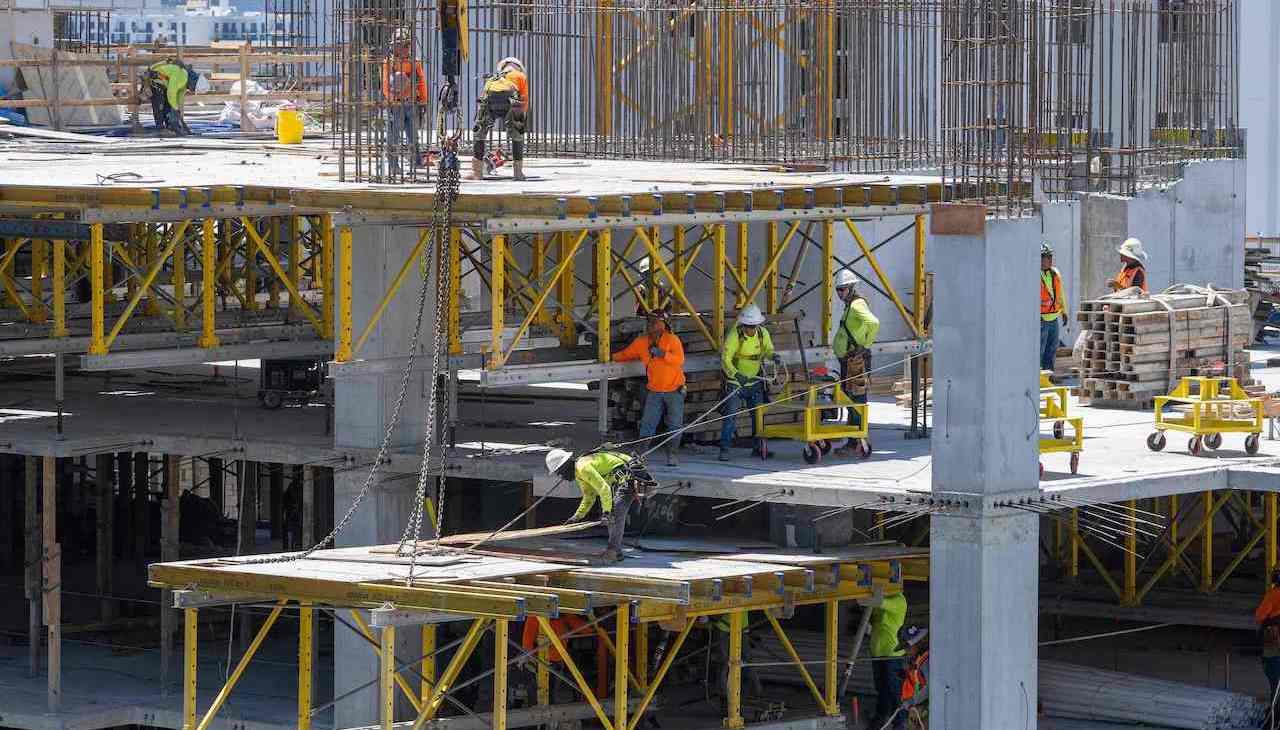
Gov. Ron DeSantis’ Immigration Law takes effect July 1. What’ll happen to the state’s economy?
Florida Gov. Ron DeSantis signed Senate Bill 1718 into law as the state’s so-called “toughest in the nation” immigration measure, and it takes effect July 1. But worries are mounting over its potential consequences such as major shifts to the agricultural and construction industries in the state facing labor shortages.
With less than two-weeks before it becomes a reality, Florida already has 53 available workers for every 100 open jobs, putting the state in the "more severe" category of labor shortage, according to the U.S. Chamber of Commerce.
State businesses are already losing some of the roughly 800,000 undocumented workers estimated to currently be in Florida
The Florida Policy Institute estimates the state's most labor-intensive industries could lose 10% of their workforce, which will cost the state over $12.6 billion dollars in one year.
Other than the construction and agriculture sectors, restaurants, landscaping and several other service sectors already struggling to fill jobs during what has been described as a post-pandemic stretch of low unemployment, will continue to struggle with the new immigration limits.
This includes those that clean floors and carpets, repair roofs, do pest control, and deliver landscaping material. The state’s many hotels will also suffer with less housekeeping, kitchen and banquet work.
Florida currently has a 2.6% unemployment rate that is expected to be impacted by DeSantis’ legislation. The unemployment rate has been the lowest among the nation's 10 largest states for the past year.
The 2024 Republican Presidential hopeful’s new legislation requires companies with 25 or more employees to use E-Verify when hiring with potential fines facing employers who do not verify an applicant’s or worker’s immigration status, including a suspended license to operate.
Under the new law, it will also be a felony for those who transport undocumented immigrants into the state. For mixed-status married couples and farm workers, life will become tough almost immediately.
CONTENIDO RELACIONADO
The new law will also invalidate any and all out-of-state driver's licenses issued to undocumented people.
Any workers caught using a fake ID to get a job could face being charged with a felony. Healthcare will also be affected with hospitals accepting Medicaid required to check patients’ immigration statuses.
The law already has some of the state’s Republican lawmakers worried about the economic impact, with Rep. Rick Roth seemingly accepting the consequences by saying the “harm is done” on a recent CBS News appearance.
Roth said the law would have "unintended consequences.” He was among 83 legislators to approve Senate Bill 1718 on May 2.
Earlier this month, Roth and fellow GOP State Reps. Alina Garcia and Juan Fernandez-Barquin spoke at an event in Hialeah, Florida, about the new law, and Roth was captured in a video shared by political activist Thomas Kennedy, saying that the bill is meant to "scare" immigrants.
He then told those in attendance to speak to their immigrant workers about staying and not moving to neighboring Georgia, where many have already gone since the law’s announcement.
Roth is also heard calling the legislation more of a "political bill,” as also confirmed in another video shared by Kennedy, where Garcia said the bill is meant to scare people away from coming to Florida, saying that the rules have "no teeth."
Several protests have taken place across the state ahead of July 1, including one earlier this month when over 300 people and advocates held signs and shouted around the Mission San Jose of Saint Peter Catholic Church in Pierson, Florida.










DEJE UN COMENTARIO: